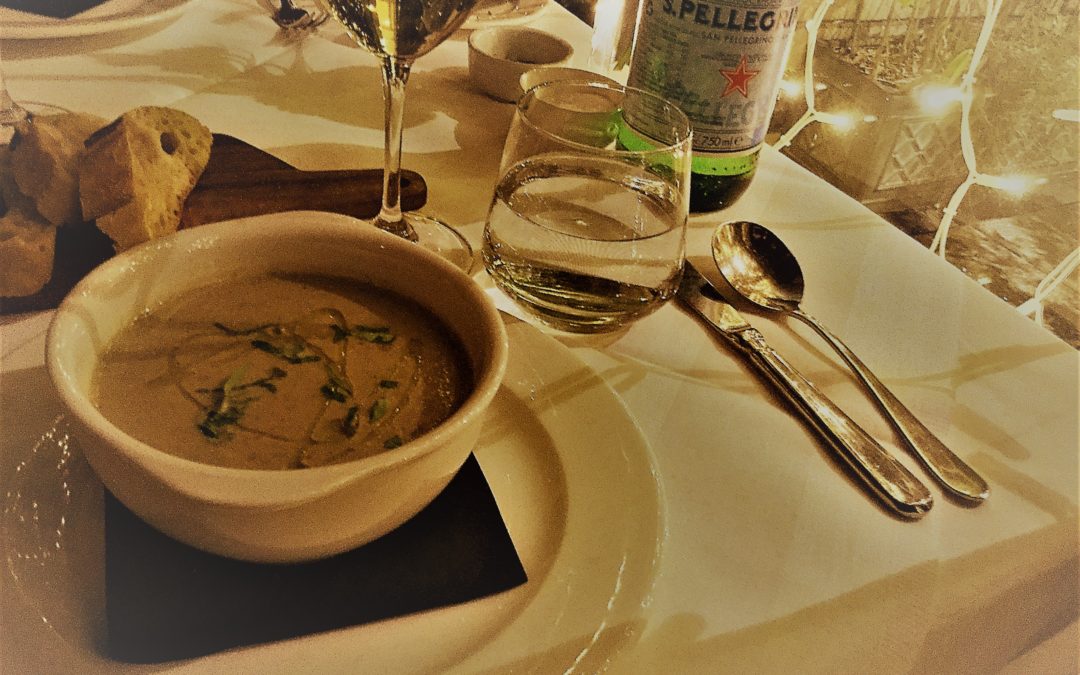We stayed in a quiet area this time, away from the rowdy bars—rows of Georgian houses, noble proportions and glowing fan windows. We walked along those quiet streets to get to restaurants, and wondered what the lit-up buildings were.
Once every five years, a city gets older.
We debated whether happiness is possible, after certain terrible things. We decided on intermittently. An occasion, rather than a condition. Interstitial. All coming down to understanding, and definition, which can be different. Most likely are.
We ate fish (different from the late-night seafood orgy in Oxford, more than a decade ago—we are more than a decade; maybe we drink slightly less). Cod and shellfish chowder in a BYO restaurant where there may or may not have been a scam running (we went back and forth, hoping yes rather than no). Hake and halibut and Sea bass with skins crisped, and delicate sauces hiding chili and saffron and dill and cardamom—your taste buds could find them if you were still long enough, and quiet, and concentrated. I want to emphasize that if there was skin, it was crispy, even if bathing in sauce; the skin keeps the fish taste in, and there should be at least some.
With the fish came global: little dots of fish eggs, cauliflower au gratin, steamed snow peas in piquant chili vinegar. With the fish came roast potatoes. Thin, crunchy skin, holding steamy secrets in. Not needful of butter, but not impossible. Feasty famine food.
That is us, one of us said—feast or famine. Though not of potatoes.
In Dublin, butter is a delicious sin, and bread is what my grandmother used to call soda bread : whole-meal and dense, sweet as cake.
The French have been in Ireland for centuries, in one form or another, and there are excellent French restaurants. I had crème brulée at one of them (rez de chaussée, fond d’escalier), and it was excellent: just a hint of burnt in the caramelized sugar (si non, ce n’est pas de la crème brulée).
Cheese boards (the real ones, not the scam): Irish goat’s, with membrillo from somewhere warm, and paper-thin slices of green Granny Smith apple that could come from anywhere. And French brie and manchego de España, and soda bread.
Coffee arrived in Ireland, some time ago. It’s no longer just tea, and the coffee is very good, not from Ireland, at least not originally (it keeps arriving), and I drank a lot of it. There are Starbucks, of course; I went to one. And Irish Insomnia, which I patronized rather than Starbucks, after the first, jet-lagged day. Insomnia gives you homemade soup for lunch—organic ingredients, all local, farm-to-table style. With soda bread.
Insomnia—there was a flower shop on my way there, from the hotel, with plants outside even on the cold, rainy days—was where I wrote. Tried to. And sometimes managed. There was a tower outside my window, innocuous during the day. At night, it looked like a Dracula thing. Especially on the rainy nights—there were two.
We drank a lot of wine—direct pipeline from France to Baggot Street, free-flowing Chablis. Which I don’t habitually drink, but I might start. The first night—room service and the parsnip soup was divine (with soda bread)—I splurged on a Montrachet, and was not sorry.
The best thing, the last thing: mushroom soup, the last supper. Earthy and creamy and thick, drizzled with truffle oil. One or three stray whole funghi, every other bite or so, keeping it real. Could probably have done without the second course (fish, divine) and just had more soup, the scrapings mopped up with soda bread. You only see French country bread here: we ate the soda.
In the interstice of mushroom soup, we were happy. We agreed on that.
Happy New Year, btw, my dear readers, all four of you. May it treat us all kindly. And if not, may it drown us, gently, in Chablis.

